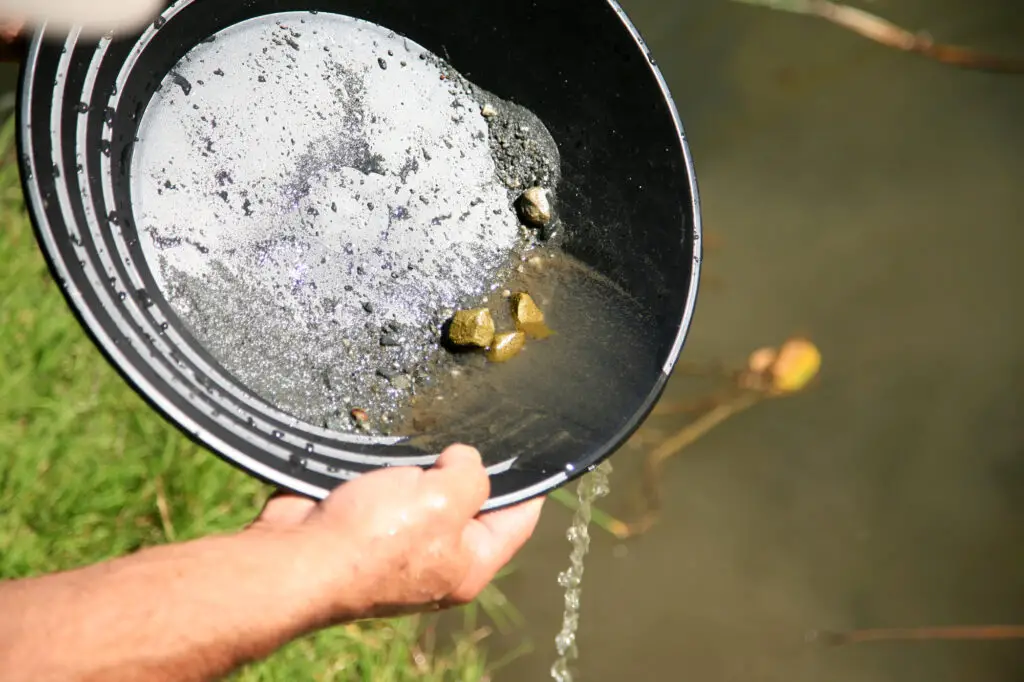In the hunt for glimmering specks of fortune nestled within the untouched streams of The Green Mountain State, aspiring and seasoned prospectors alike need to be aware of the gold panning laws in Vermont. Understanding the legal terrain is just as essential as understanding the geological one. The thrill of uncovering a hidden gem (or, in this case, gold flake) is intoxicating, but panning for gold is not a free-for-all endeavor—it’s a practice shrouded in both history and regulation.
Vermont’s naturally rich landscape, encompassing a spectrum of rivers and streams, might seem like a gold prospector’s paradise. However, before you pack your pans, pickaxes, and enthusiasm, it’s crucial to know that gold panning is not an unrestricted activity. Like many states in the U.S., Vermont has specific laws that govern where, how, and when you can pan for gold.
This blog will serve as your detailed guide, outlining the rules and regulations associated with gold panning in Vermont. We’ll delve into the legalities, providing you with clear information about where you can legally prospect, necessary permits, and rules regarding equipment usage. Our aim is to equip you with the knowledge to strike gold, metaphorically and literally, within the boundaries of the law.
As you venture towards unearthing your very own piece of hidden treasure, it’s crucial to remember that respecting the laws of the land will ensure the sustainable pursuit of this age-old practice, keeping the thrill of the gold rush alive for future generations. Stay tuned as we navigate through the legal intricacies of gold panning in Vermont, helping you strike a balance between your adventurous spirit and responsible prospecting.

Can You Pan For Gold In Vermont?
Yes, you can pan for gold in Vermont. Gold panning is an activity that attracts both residents and tourists to the state. However, it’s important to note that there are regulations in place to protect the environment and private property rights, and these need to be observed when prospecting.
Vermont has no laws prohibiting recreational gold panning, but there may be restrictions on where you can pan for gold. Public lands are generally open to prospecting, but it’s always a good idea to check with local authorities or park management to make sure it’s allowed. Gold panning on private property requires permission from the landowner.
It’s also worth noting that certain methods of gold extraction, such as using suction dredging or sluice boxes, might be restricted or require permits in order to minimize environmental impacts. These restrictions can vary from state to state, and sometimes even within different regions of the same state.
Always remember to respect the environment and the rights of others when prospecting. Leave no trace, respect wildlife, and don’t disturb historic or archeological sites. And, of course, check for the most current laws and regulations related to gold panning in Vermont.
Can You Sluice For Gold In Vermont?
Using a sluice for gold mining in Vermont could be permitted, but it’s critical to check the most recent regulations since rules can change. Many U.S. states, including Vermont, regulate the use of equipment like sluices, highbankers, and suction dredges more strictly than simple gold panning due to environmental concerns.
The use of a sluice box often requires more specific permissions and may be restricted to certain areas and times of the year to protect fish spawning seasons and sensitive habitats. For instance, you might need a permit from the Department of Environmental Conservation or a similar state authority.
Additionally, any activity on private property requires explicit permission from the landowner. Always remember to leave no trace, respect wildlife, and not to disturb historical or archaeological sites.
Therefore, before heading out with your sluice box, it’s recommended to contact the appropriate state agency or local authority to get the most current information about regulations, permits, and best practices. Always ensure you are operating within the law to maintain the sustainability of this exciting and rewarding activity.
Do You Need A Permit To Prospect For Gold In Vermont?
You do not need a permit for recreational gold panning in Vermont. However, the use of more substantial equipment like sluices, dredges, or highbankers may require a permit or be subject to more stringent regulations to minimize environmental impact.
It’s important to understand that while you might not need a permit for simple panning, there are still rules about where you can prospect. Public lands are often open for prospecting, but it’s best to check with local authorities or park management to confirm. Prospecting on private land requires explicit permission from the landowner.
Additionally, prospecting activities are expected to follow best practices for minimizing environmental impact, such as not digging into stream banks or disrupting vegetation, not creating large holes or diverting waterways, and filling in any holes you dig.
As regulations can change, it is crucial to get the most current and detailed information from local authorities or relevant state agencies before you go prospecting. If you’re unsure, a good place to start could be the Vermont Department of Environmental Conservation or the Vermont Agency of Natural Resources.
What Are The Gold Panning Regulations In Vermont?
Vermont does not have specific regulations solely pertaining to recreational gold panning. However, some general guidelines and regulations apply:
Where you can prospect: While gold panning is generally allowed on public lands, you should always check with the local land management agency to confirm whether it’s permitted in your specific area. Prospecting on private property always requires explicit permission from the property owner.
Equipment usage: If you plan on using more advanced equipment, such as a sluice box or a dredge, different regulations may apply. Some equipment might be restricted or require a permit, especially if its use could impact fish populations or other aspects of the local ecosystem. Again, check with local authorities or the state’s Department of Environmental Conservation.
Environmental impact: Any prospecting activities should minimize environmental impact. This means you shouldn’t dig into stream banks or disrupt vegetation, and any holes you dig should be filled in afterward. Also, you should avoid creating large holes or diverting waterways.
Historical and archaeological sites: It’s important not to disturb historical or archaeological sites while prospecting. Such sites may have additional protections under state or federal law.
Here is a article we have written on 24 best prospecting spots in Vermont

